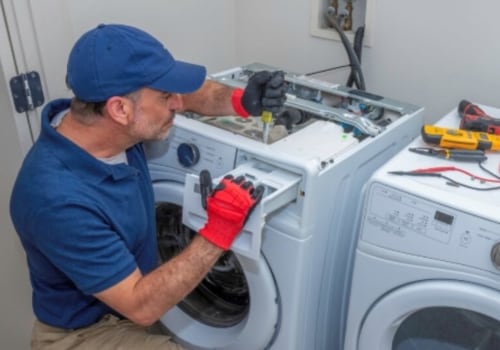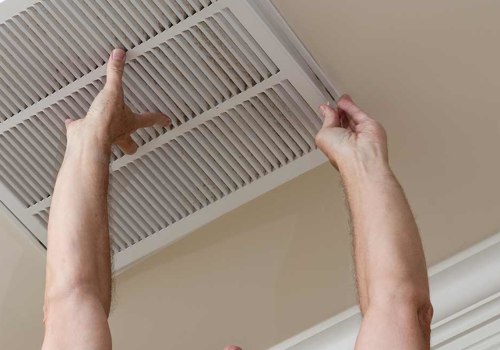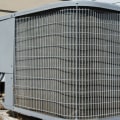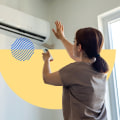Key Takeaways
- Comprehending various kinds of cooling systems
- Important elements to take into account
- Evaluating your refrigeration requirements
- Financial and expenditure factors
- Extra functionalities to improve ease
How To Choose The Right Air Conditioner For Your Home | Understanding Different Types of Air Conditioners
Choosing the right air conditioner for your home involves understanding the various types available, each with distinct advantages. Central air conditioners provide a comprehensive solution for larger spaces, ensuring uniform cooling throughout the home. For smaller areas, room air conditioners, such as window unit air conditioners or portable air conditioners, offer flexibility and ease of installation. Split-system air conditioners can also be a great option, providing both efficiency and enhanced indoor air quality. It's essential to consider your specific cooling needs, space size, and preferences when exploring how to choose the right air conditioner for your home, ensuring optimal comfort and energy efficiency.
How to Choose the Right Air Conditioner for Your Home | Central Air Conditioning Systems
Central air conditioning systems are a popular choice for homeowners looking to cool larger spaces efficiently. These air conditioning units provide consistent cooling by distributing chilled air through a series of ducts. A central air-conditioning system is designed to work seamlessly with heating, ventilating, and air conditioning (HVAC) systems. It is ideal for maintaining overall comfort in a home and can enhance the interior environment by improving air quality.
Understanding how to choose the right air conditioner for your home involves evaluating the benefits of central air systems versus alternatives like split air conditioners or mini-split air conditioners. Central air conditioning typically requires professional installation and may involve more upfront costs than other options. However, the efficiency and convenience of a central air conditioning system can lead to long-term satisfaction and reduced energy costs.
Ductless Mini-Split Systems
For those seeking a versatile cooling and heating solution, mini-split systems can effectively serve as a split system central air conditioner. These systems consist of an outdoor compressor and one or more indoor air-handling units, allowing for controlled climate management in individual rooms. They are particularly advantageous for homes without existing ductwork. Along with providing home heating, they enhance air quality by incorporating advanced filtration systems that remove allergens and pollutants, ensuring clean air circulates within your living spaces.
The simplicity of installing and maintaining a mini-split makes it a popular choice among homeowners. Each unit operates independently, offering tailored comfort and energy savings. Many models come equipped with smart technology, making them a seamless addition to your smart home. As part of an HVAC system, these air-to-air heat pumps also provide excellent ventilation, delivering fresh air while regulating temperature. Understanding how to choose the right air conditioner for your home involves considering the benefits of these efficient and adaptable systems.
- Easy installation with minimal disruption to your home
- Energy-efficient operation, potentially reducing utility bills
- Quiet performance, ensuring a peaceful environment
- Customizable settings for individual room preferences
- Integrated smart technology for remote control and automation
- Improved air quality through advanced filtration systems
- Versatile applications, suitable for various home layouts and sizes
Window Air Conditioners
A practical option for specific rooms, these units offer flexibility and affordability. They are ideal for spaces that need targeted cooling without requiring extensive HVAC systems. Understanding how to choose the right air conditioner for your home includes considering unit capacity and airflow. Many models come equipped with efficient air filters, which can help improve indoor air quality by capturing dust and allergens. Some even function as air purifiers, providing an additional layer of comfort during the warmer months.
Installation is straightforward, making them accessible for renters or homeowners who prefer not to commit to permanent solutions like central air systems. Regular maintenance is vital, particularly in checking the air filter to ensure optimal performance and longevity. A well-functioning condenser is crucial for efficient heating and cooling. By evaluating cooling needs and installation options, selecting the right window air conditioner can lead to a comfortable living environment.
Key Factors to Consider
Selecting the right air conditioning system involves evaluating several key factors to ensure optimal comfort and efficiency. Understanding how to choose the right air conditioner for your home means considering the size of your apartment or house, as the cooling capacity must match the cooling load for effective temperature control. It is essential to assess the type of heating system already in place; for instance, central air can work seamlessly with existing ducts, while air-source heat pumps might be ideal for those seeking dual heating and cooling solutions. Energy efficiency ratings also play a critical role, influencing both initial costs and long-term energy expenditures. Efficient air flow design can significantly enhance the overall performance of your AC unit, ensuring that every corner of your living space remains comfortable regardless of external temperatures.
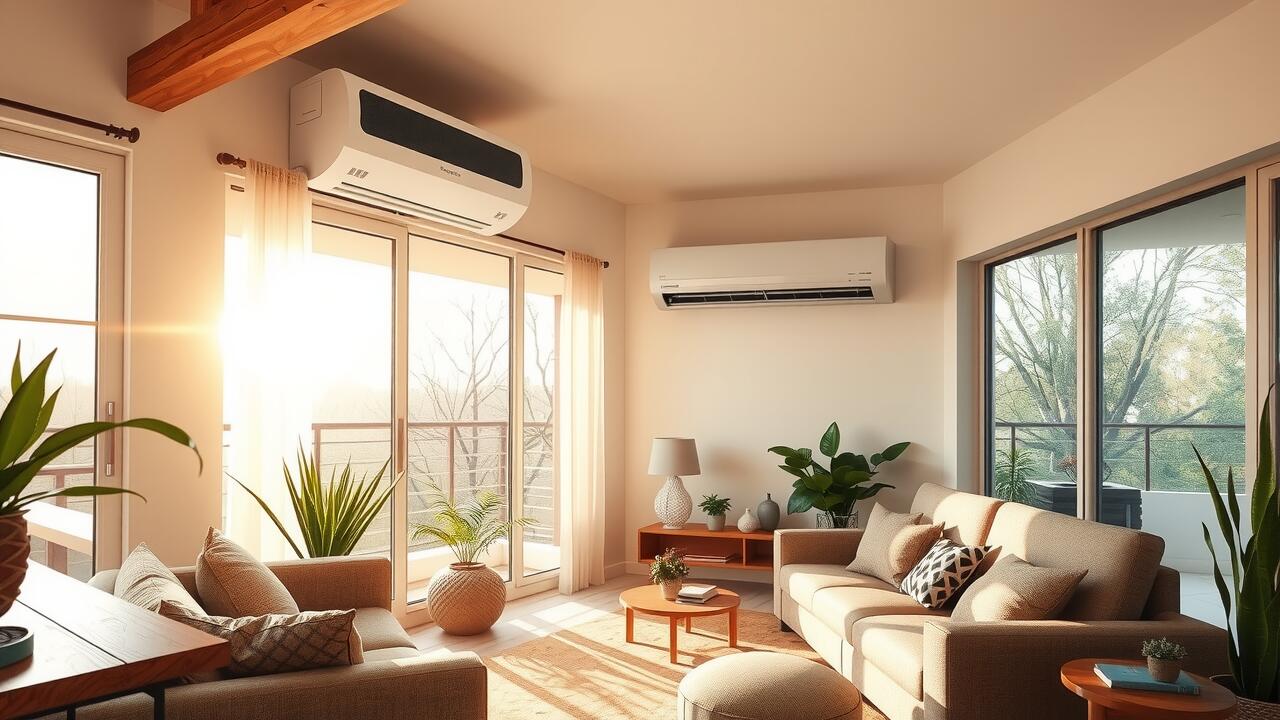
Size of the Space
Understanding the dimensions of the space you need to cool is crucial in how to choose the right air conditioner for your home. Each room has different cooling requirements based on its size, layout, and the number of windows. A common air conditioner may be sufficient for a small bedroom, while larger open spaces might require a more powerful system. The right air conditioner ensures efficient operation, preventing underperformance or unnecessary energy consumption due to mismatched capacity.
Accurate measurements allow you to determine the British Thermal Units (BTUs) necessary to effectively cool your room. An ac unit that is too small will struggle to maintain comfortable temperatures, while one that is too large can lead to uneven cooling and higher energy bills. Prioritizing the right size is essential for achieving the perfect air conditioner experience. To make an informed air conditioner choice, consider factors like ceiling height and potential heat sources within the space.
Energy Efficiency Ratings
Understanding energy efficiency ratings is crucial in how to choose the right air conditioner for your home. It helps consumers differentiate between various models, including centralized air conditioners and modern air conditioners. Look for the Seasonal Energy Efficiency Ratio (SEER) and Energy Efficiency Ratio (EER) ratings, as these indicate how effectively the entire air conditioner operates. For instance, smart air conditioners often have higher ratings, which translate to lower energy consumption and cost savings over time. Ratings can also assist in comparing 1-2 air conditioners from different manufacturers, ensuring you select the most efficient option.
Evaluating energy efficiency ratings also involves understanding air conditioner tests conducted by reputable organizations. These tests gauge performance under various conditions, providing insights into how well an air conditioner will function in your specific environment. While reviewing options, consider whether you need an air conditioner cover for seasonal storage or protection. A higher efficiency rating often means fewer leaks and better insulation, making it essential when assessing regular air conditioners or ductless models. Prioritize efficiency to enhance comfort, reduce energy bills, and select the right air conditioning for your space.
Installation and Maintenance Requirements
Choosing the right air conditioner for your home involves considering installation and maintenance requirements. Larger systems like central air conditioners often require professional installation, which can influence your overall budget. On the other hand, window air conditioners generally offer a more straightforward installation process, making them suitable for DIY enthusiasts. Air conditioner ratings play a crucial role in evaluating energy efficiency, which can affect long-term operational costs. Higher-end air conditioners may come with advanced features that not only simplify installation but also reduce maintenance demands.
Regular upkeep is essential to ensure optimal performance of your cooling system. Many air conditioners, including ductless mini-split systems and outdoor air conditioners, require periodic maintenance to sustain their efficiency. Proper maintenance can prevent common issues related to air conditioner size and capacity. Neglecting maintenance can lead to decreased performance and increased energy bills. Understanding how to choose the right air conditioner for your home also involves recognizing the long-term implications of each system's maintenance needs.
Assessing Your Cooling Needs
Understanding your cooling needs is crucial in how to choose the right air conditioner for your home. Evaluate the size of the areas you wish to cool, as selecting the correct size air conditioner ensures efficient operation and sufficient air circulation. For example, whole-home cooling may require a central system, while reliable room air can be achieved through through-the-wall air conditioners or ductless mini-split systems. Consider the home HVAC capacity to maintain good indoor air quality, particularly if you're aiming for effective air purification with an air conditioner filter. Assessing local climate and how your home insulation performs against air leaks will also impact your decision, guiding you to the most suitable air-conditioning system for your needs.
Local Climate and Temperature Patterns
Understanding the local climate is essential for homeowners looking to choose the right air conditioner for their home. For regions with hot summers and cold winters, investing in a central-air system may offer the most effective air solution. Conversely, those in milder climates might benefit from room air conditioners or ductless mini-split systems that can effectively handle cooling without the need for expensive permanent air installations. Assessing the noise levels of various models can also be crucial since noisy air conditioners can disrupt daily activities.
Temperature patterns throughout the year dictate more than just comfort; they influence the type of air-handling units required for effective whole-house cooling. Homeowners should carefully evaluate their specific climate, as some air conditioners are designed to handle extreme temperatures better than others. By understanding these patterns, one can make an informed decision about whether to opt for a powerful central air system or a more flexible solution that suits the home's cooling needs.
Home Insulation and Air Leaks
Proper insulation and minimizing air leaks are crucial for optimizing your HVAC system's performance. Many homeowners overlook the importance of these factors when considering how to choose the right air conditioner for your home. A specific HVAC system may struggle to keep your home cool if insulation is lacking or if air leaks exist around windows and doors. Selecting the right size HVAC unit is essential, as it can significantly impact energy consumption and comfort levels. Ensuring adequate airflow through the indoor unit is key to achieving the desired temperature and efficiency.
Air leaks can lead to wasted energy and increased costs, making it vital to address these issues during the HVAC purchase process. Homeowners should assess their space to determine the right option that matches their insulation quality and leakage potential. Engaging HVAC services for professional evaluation can help identify gaps, ensuring that your air outlet operates efficiently. By focusing on these elements, homeowners can enhance their overall cooling experience while effectively managing their air conditioning needs.
- Evaluate existing insulation in your home for effectiveness.
- Identify and seal air leaks around windows and doors to improve energy efficiency.
- Choose an appropriately-sized HVAC system based on home insulation and size.
- Consult with a professional for a thorough HVAC evaluation.
- Regularly inspect and maintain insulation to ensure longevity and performance.
- Consider upgrading insulation materials to enhance energy conservation.
- Implement energy-efficient practices to complement HVAC performance.
Usage Patterns and Preferences
Determining how to choose the right air conditioner for your home involves considering your unique home requirements and usage patterns. Families with varying schedules may need a system that can adjust its cooling capabilities based on peak occupancy times. For example, if you are often out during the day but return to a warm home in the evenings, a programmable thermostat can optimize your air conditioning usage, ensuring comfort while enhancing energy efficiency.
Temperature control preferences can also differ greatly among household members. Some individuals may prefer cooler settings while others enjoy a milder climate. Consulting with a local HVAC installer can help identify the right size air conditioner that meets these diverse cooling needs. HVAC experts can also advise on maintaining air filter cleanliness, which is crucial for optimal performance and air quality within your home.
Budget and Cost Considerations
Choosing the right air conditioner for your home involves careful consideration of budget and cost factors. The initial purchase price of a central air system can vary significantly, impacting overall affordability. Well-insulated homes may require less power to cool, thus influencing long-term energy costs. While common window air units might be cheaper upfront, they may not provide the same level of comfort as a central air system in handling hot air efficiently. Evaluating available rebates and incentives can help reduce the initial financial burden, making it easier to invest in HVAC excellence. Ultimately, understanding how to choose the right air conditioner for your home will ensure that your space remains comfortable while managing expenses effectively.
Initial Purchase Price
The initial purchase price of an air conditioner significantly impacts the overall investment in your home cooling solutions. Understanding how to choose the right air conditioner for your home requires evaluating various conditioner features that fit your budget. For instance, central air conditioning systems often have a higher upfront cost compared to window unit air conditioners. However, they may offer more adequate cooling for larger spaces, enhancing comfort throughout your new home.
Budget considerations should also include potential venting options and installation expenses. Home energy assessments can help identify the right type of system that balances performance and price. While a more expensive model might seem daunting, the long-term energy savings could make it a cost-effective choice. An informed decision ensures that your indoor unit efficiently delivers cool air without excessive financial strain on your household.
| Air Conditioner Type | Initial Purchase Price Range | Cooling Capacity (BTU) | Energy Efficiency Rating (SEER) | Average Installation Cost |
|---|---|---|---|---|
| Window Unit | $150 - $600 | 5,000 - 15,000 | 10 - 12 | $100 - $300 |
| Portable Air Conditioner | $250 - $700 | 8,000 - 14,000 | 8 - 10 | $0 - $150 |
| Split System | $1,500 - $5,000 | 12,000 - 24,000 | 14 - 22 | $1,000 - $3,000 |
| Central Air Conditioning | $3,000 - $7,000 | 30,000 - 60,000 | 14 - 20 | $2,500 - $6,000 |
Long-Term Energy Costs
Long-term energy costs significantly impact the overall expenditure for air conditioning in your entire home. Understanding how to choose the right air conditioner for your home involves considering not only the initial purchase price but also future energy consumption. Efficient models that provide optimal cooling can drastically reduce electricity bills over time. Homeowners should pay attention to units that feature built-in air purifiers and self-cleaning air filters, as these can enhance indoor air quality while also maintaining efficiency.
Evaluating long-term costs also means assessing your home's insulation and sealing practices. Even the best air conditioner won't perform well if your home doesn't effectively prevent air leaks. Proper insulation and maintenance of airflow direction can play a critical role in minimizing energy waste. Taking these factors into account will guide you in making an informed decision and help ensure that your investment in residential heating and cooling remains cost-effective for years to come.
Available Rebates and Incentives
Rebates and incentives can significantly reduce the overall cost of your air conditioning system. Many utility companies and government programs offer financial assistance for energy-efficient models, making it more accessible to afford a whole house system. If you're considering how to choose the right air conditioner for your home, investigate potential savings on energy-efficient options like air-source systems. These can optimize indoor temperatures and potentially qualify for special rebates that reduce the initial investment.
Working with a trusted HVAC dealer can help you identify available rebates tailored to your specific needs. Whether you're opting for a window air unit for an individual room or a more complex setup with an outside condenser and indoor unit, receiving these incentives can be a game-changer. Don't overlook programs that promote smart features, which might provide further savings while allowing you to set individual temperature settings throughout your home. Knowing how to choose the right air conditioner for your home can also involve exploring these financial benefits.
Additional Features to Enhance Comfort
Selecting the right unit involves considering various features that can significantly enhance comfort. Smart technology and connectivity allow homeowners to remotely control their systems, optimizing ambient air quality and ensuring efficient energy use. Multi-speed fans and variable capacity options can effectively distribute air, addressing potential airflow issues within well-insulated rooms. For areas that require venting, a supplementary heating system can complement your air conditioner, providing comprehensive climate control. Understanding how to choose the right air conditioner for your home involves evaluating these additional features to ensure your system meets the required cooling capacity while enhancing overall comfort.
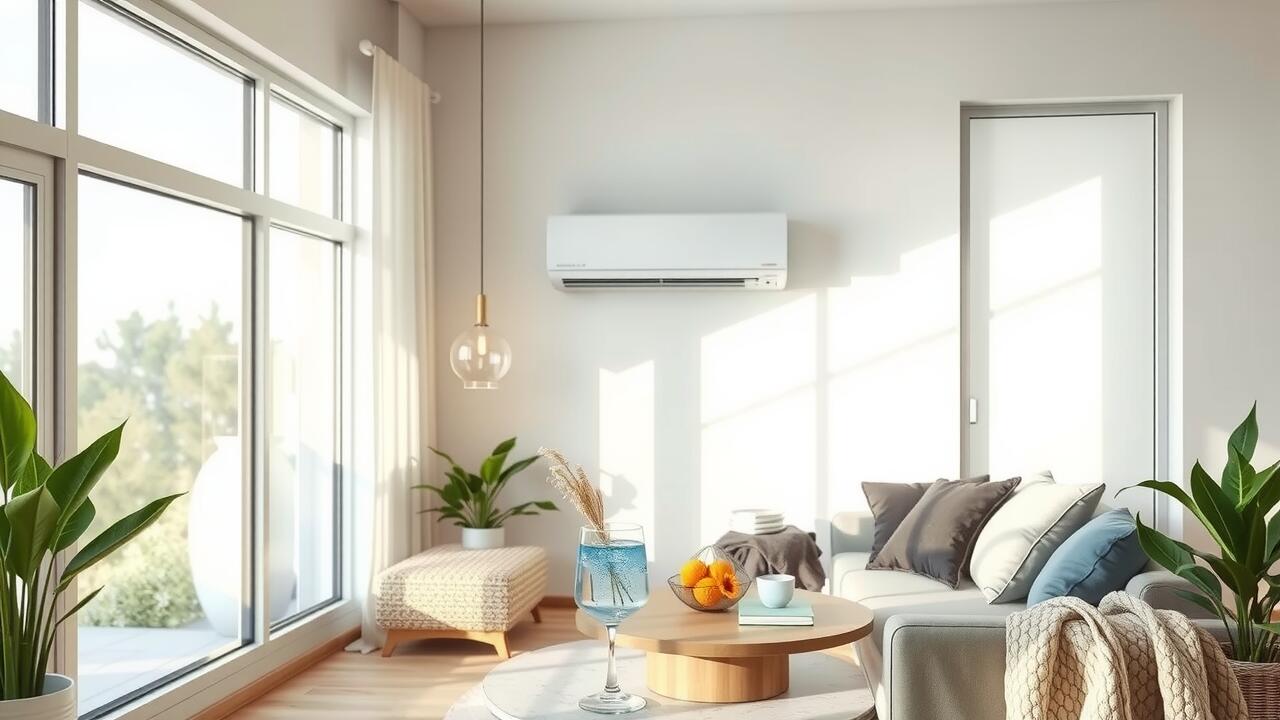
Smart Technology and Connectivity
Smart features in air conditioning systems significantly enhance comfort and convenience for homeowners. Systems with smart technology allow users to control settings remotely, ensuring that their air conditioning units maintain the right temperature throughout the day. For those considering how to choose the right air conditioner for your home, selecting models with connectivity options can simplify managing cooling across the entire house. These systems can coordinate with an outdoor condenser of the same brand to provide efficient cooling, especially for multi-zone setups like exercise rooms.
Some air conditioners offer advanced air purifying functions, which improve indoor air quality along with temperature control. Homeowners can program their systems to avoid excessive cooling, balancing comfort and energy savings. To ensure optimal performance for your needs, consider smart features that enable you to customize settings based on usage patterns. Knowing how to choose the right air conditioner for your home means understanding the value of these modern conveniences in maintaining a comfortable living space.
Multi-Speed Fans and Variable Capacity
Multi-speed fans and variable capacity systems make a significant difference in how to choose the right air conditioner for your home. These features allow the cooling system to adjust its output based on the indoor temperature and the needs of different rooms. This ensures that the entire homes benefit from an excellent job cooling or heating, optimizing comfort levels. A cooling system that operates efficiently can adapt to changes in the environment, be it sweltering summer days or unexpectedly chilly nights.
Opting for a cooling equipment with multi-speed fans and variable capacity not only enhances comfort but also promotes energy efficiency. By regulating airflow and capacity, these systems can deliver cool or heat as needed without excessive energy consumption. Homeowners can enjoy a good choice of a system that maintains consistent temperatures throughout different rooms while minimizing energy bills. When considering how to choose the right air conditioner for your home, these features should not be overlooked for optimal performance.
Air Filtration Systems
Proper air filtration is crucial for maintaining a healthy indoor environment. Homeowners should prioritize systems that can effectively filter out airborne pollutants while providing ample airflow. Understanding how to choose the right air conditioner for your home involves considering the specific needs of various home layouts. A well-designed filtration system not only enhances indoor air quality but also works in conjunction with advanced heating capabilities, ensuring that the house maintains enough humidity during the conditioning process.
Choosing a system that complements your home size can lead to significant improvements in energy efficiency. Efficient air filtration helps reduce cooling costs while maintaining optimal airflow throughout the space. Homeowners should think about how to choose the right air conditioner for your home by evaluating the filtration options available. Selecting the right system will ultimately enhance comfort and air quality, providing a healthier living environment for everyone in the house.
Conclusion
Understanding how to choose the right air conditioner for your home involves considering various elements such as the size of your indoor items, energy efficiency, and installation requirements. Each air conditioning system comes with its own set of benefits that can enhance your home’s comfort. Evaluating your specific needs, including local climate and personal usage patterns, will ensure you select the right unit. A well-informed choice not only improves cooling efficiency but also contributes to long-term energy savings. Knowing how to choose the right air conditioner for your home ultimately leads to a more comfortable living environment during those hot months.
FAQS
How can I ensure that I select the right choice of air conditioner for my home, considering factors like the indoor unit's capacity and the need for a centralized air system or ductless air conditioners?
To choose the proper air conditioner for your home, consider several important factors. First, evaluate the air conditioner capacity based on the size of your space to ensure good airflow and efficient cooling mode. You might want to explore different air conditioner types, such as centralized air conditioners or ductless air conditioners, depending on your home solutions and layout. Look for features offered by various air conditioner manufacturers, and make sure that they meet criteria for good heating and energy-efficient home standards. It’s also advisable to consult with a TemperaturePro HVAC expert who can guide you in the right direction based on the climate and airflow needs of your indoor units so that your home—and indoor unit houses—remain comfortable year-round.
What features should I consider to make sure I select the right air conditioner for my home, including whether to opt for a centralized air system or ductless air conditioners that will help keep my indoor unit cool and efficiently transfer cooled air?
When choosing air conditioners for your home, it's essential to evaluate several key air conditioner features, such as the efficiency of the ventilation system, the capacity of the indoor unit to cool/heat your space, and whether a central-air system or ductless air conditioners would best suit your needs. Additionally, it's important to consider maintaining the same brand for your outdoor condenser to ensure a smooth airflow isn and make your home comfortable while ensuring that outside air is effectively managed. Making the right choice involves understanding how each feature contributes to keeping your own homes at the optimal temperature.
What factors should I consider to ensure that I select the right air conditioner for my home, especially in terms of indoor unit size and the choice between centralized air conditioners or ductless systems?
When choosing the right air conditioning systems for your home, it’s essential to consider the size and efficiency of the indoor unit, as well as whether to opt for centralized air conditioners or ductless systems. A centralized air system can efficiently cool larger areas, but if you’re looking for a solution that targets specific zones in your home, ductless air conditioners may be a better fit. Additionally, make sure the systems can transfer the cooled air effectively to ensure your indoor unit stays cool during hot months. Lastly, it may be advantageous to choose components from the same brand for your outdoor condenser to ensure compatibility and performance.
What should I think about when deciding between centralized air conditioners and ductless systems for my home's indoor unit cool needs?
When choosing between different types of home air conditioners, such as centralized air conditioners or ductless systems, make sure to consider how the air conditioner transfers cooled air effectively throughout your living space. Additionally, ensure that you have the same brand—outdoor condenser to maintain compatibility and efficiency. If you’re thinking of installing a central-air system—or opting for ductless units, it’s essential to evaluate how each system would play in your home environment to keep your indoor unit cool or heat effectively.
How do I select the best acs for my home, and should I choose a centralized air system—or install ductless air conditioners to ensure my indoor unit cool/heat effectively?
To make sure you choose the best acs for your home, consider whether a centralized air system or ductless air conditioners will optimize how your indoor unit cool/heat operates. Evaluate factors like room size, insulation, energy efficiency, and your specific cooling or heating needs to play a crucial role in your decision.
What considerations should I keep in mind to ensure my home's climate control system choices like centralised air conditioners or a central-air system—or install ductless air conditioners effectively support my comfort needs?
To be sure air systems meet your requirements, consider the layout and size of your home, the local climate, the energy efficiency ratings, and the flow of air throughout your space. A centralised air conditioner can cool large areas effectively, while ductless air conditioners offer flexibility for specific zones. Understanding these factors will help your home play to its strengths in maintaining a comfortable environment.
What options should I evaluate when choosing between centralised air conditioners for a central-air system—or install ductless air conditioners in my home?
When evaluating your options, consider factors such as the size of your home, your budget, and your cooling needs. Centralised air conditioners provide efficient cooling for larger spaces and can maintain consistent temperatures throughout the home. On the other hand, opting to install ductless air conditioners allows for zoned cooling, which can be more energy-efficient for smaller areas or homes without existing ductwork. Analyzing these aspects will help you select the best system for your comfort.
How do I determine if I should opt for a central-air system—or install ductless air conditioners when selecting an air conditioning solution for my home?
When determining whether to go with a central-air system—or install ductless air conditioners, consider factors such as your home’s layout, the size of the areas you need to cool, and your budget. Ductless systems can offer flexible installation and improved efficiency in smaller or specific zones, while a central-air system may be more suitable for larger homes requiring uniform cooling throughout.


